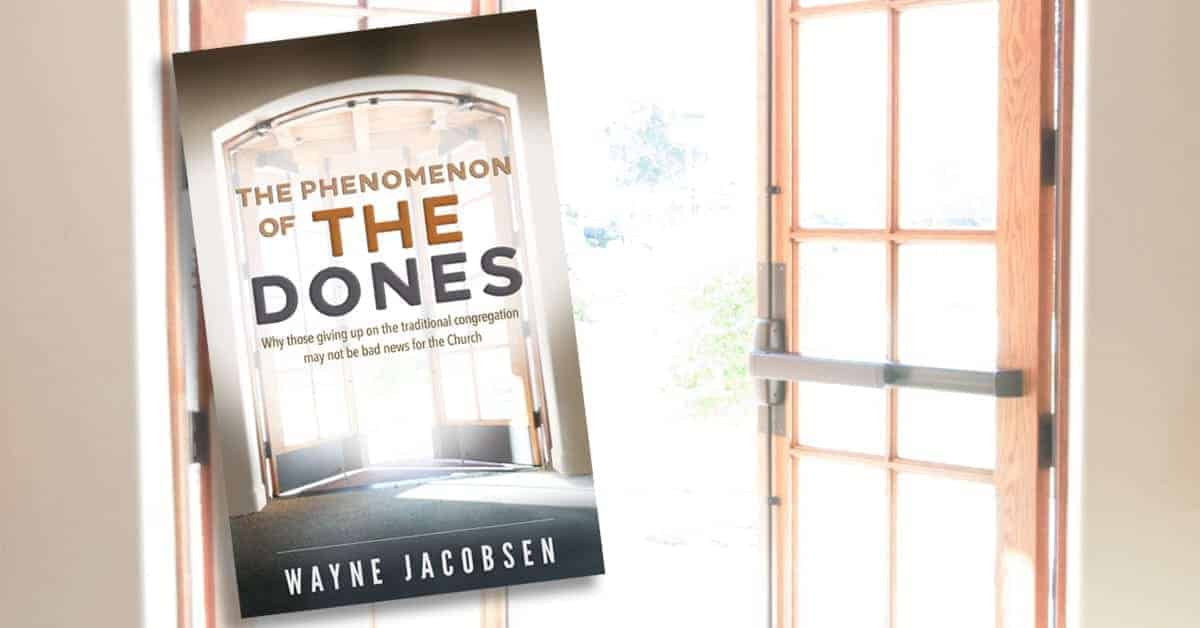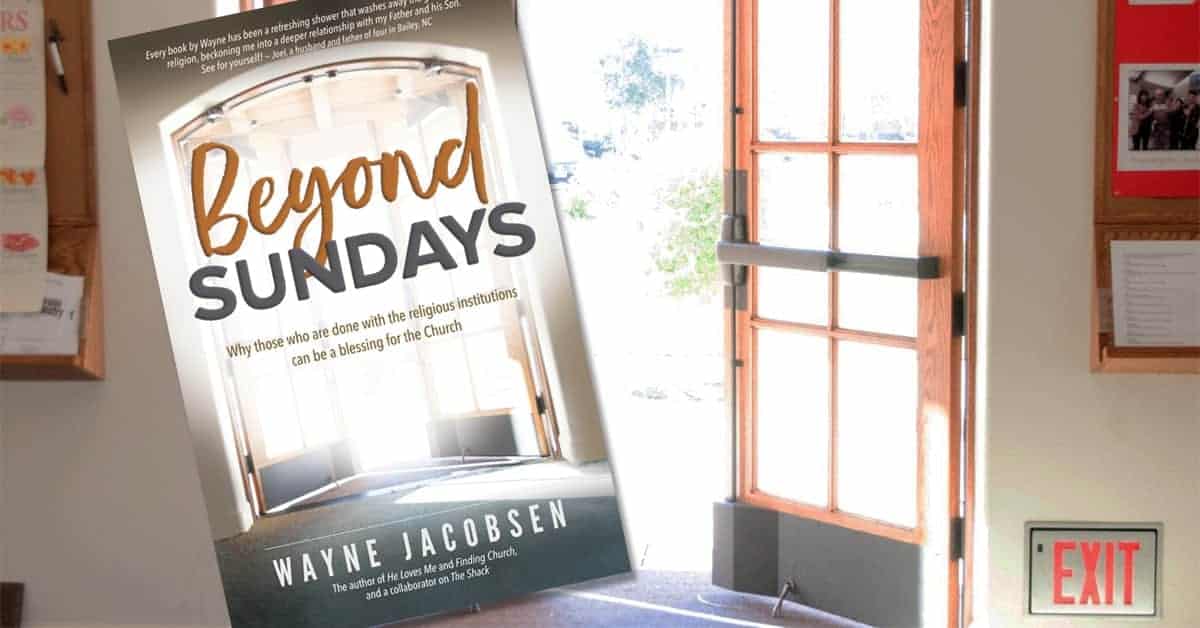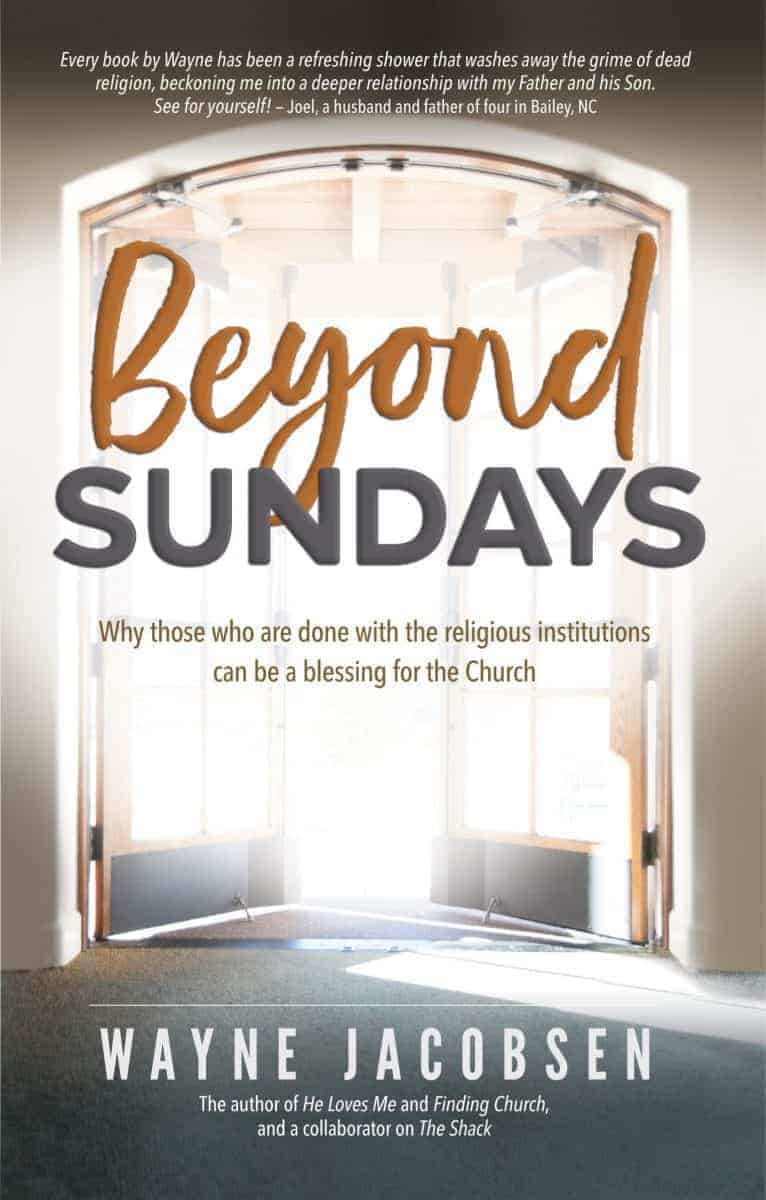This is part 9 in a series on The Phenomenon of the Dones
Last October I was invited to participate on a panel that presented the statistics of the “Dones” and share my experience of being with people who no longer see the church as an institution. “The Future of the Church Summit” was designed to help pastors wrestle with the fact that so many people are leaving traditional congregations and statistics showed there is little hope of getting them back. They question they hoped to answer was, “How do we keep the ones we have from leaving too?”
It was a courageous attempt, but sadly the focus was on fixing the program. They focused on making worship more sensory and interactive, preaching shorter sermons and involving more stories from others (video-taped so you can edit out the boring bits), and more streamlined decision-making.
There was even one session on innovative new programs to help the church go out where the people are instead of trying to get them to come to a building. That seemed promising. All five of the presenters started by telling a compelling story of how someone had a passion to reach people who had little desire for God. Each held that longing before God for a significant period of time, and then God gave them a task to do that proved wonderfully fruitful. You would think that would be a process worth encouraging. Instead, however, all of the presenters, after telling their story, tried to sell pastors on the program they created in its aftermath. Taking something lovely God had done, they systematized it into what they hoped would be a replicable program, put it in a book, and were peddling their new system, completely omitting how it had all begun.
Surprisingly not one session dared to ask if God were in this and if so, how we might celebrate and participate with him? All assumed that the “rise of the Dones” was bad news and it needed to be fixed by once again tweaking the program. My experience assures me that those who have given up on traditional congregations aren’t looking for a better program or system to implement. They have found them all to be short-lived, less fruitful than promised, and rather than leading to more authentic engagements with God and his church, actually produced systems needing continual maintenance and relationships that never reached beneath the surface.
Over the next few entries in this series I want to take a look at why our religious systems and programs are no longer satisfying people who’ve invested a lot of their lives and time in them and seek out the kind of changes that will allow the church to blossom with the glory that Christ intended. Instead of creating and seeking out new programs, we could instead answer the deeper cry of the heart that longs to know God and walk in his ways.
To that end, programs are part of the problem. They only prop up an otherwise thin reality… until they fail. Then what? Programs are an imposition. Someone sets up the doctrine we must believe, the rituals we must observe, or the curriculum we must follow and then seeks conform others to it, often with a system of rewards and punishments that manipulates people through obligation and guilt. No matter how well intentioned these systems are, they are still an attempt to force an outside, artificial construct on this amazing adventure of life. Instead of drawing people into God’s life, these only alienate them from it either because they don’t understand it or do not see the fruits they were promised.
Could this be why Jesus didn’t give his disciples with any list of doctrines, rituals, or discipleship workbooks to share with others? Instead he spoke of a better kingdom where God’s love and power works within them. He invited a handful of them into that same reality, both by modeling it for it and by showing them how they could participate in it too. He wasn’t imposing a system of living from the outside, but helping them rethink from the inside how it is to connect with God’s reality and to follow him freely. It took over three years to help them even begin to learn how to live in the Father’s love and freely share it with others.
Perhaps the greatest lesson here is that the life of God can’t be imposed; that’s the stuff of religion. You can get people to follow systems and confess true doctrines, but without a change in the heart they will never connect with him and find a trajectory that will lead them to increasing life and freedom. The Incarnation taught us that God doesn’t draw a line in the sand and tells us to cross it, but shows up where we actually are—lost in our doubts, our fears, and our lies—and invites us into a process of transformation as our relationship with him grows. Without that people will simply pretend as best they can until the frustration of their own emptiness wins out.
That’s what is happening with many who are giving up on religious systems today, while their hunger for God still grows. For years they did everything asked of them and still not finding the life in God they had been promised. They thought they were the only one struggling with the failures of this system and are only now finding out they are not. They know there is “something more” out there and have set out to find it and they are not hopeful that yet another program will do it.
That’s what the Dones are seeking and I applaud that passion. We’ve had enough of pre-packaged programs, cookie-cutter discipleship curriculum where one size-does not fit all. The congregations that will survive this season will not try to overhaul the program, but will find a more generous way to help people discover the reality behind our faith—God himself! They won’t look at the “Dones” as fallen brothers and sisters, but as colleagues in the faith setting out in uncharted waters to find a city whose architect and builder is God.
Discipleship can only work when it is an invitation to a hungry heart, not by imposing the way people should act or think from the outside. So instead of investing our time coming up with a new programs, writing yet another curriculum, or enforcing a ritual to follow, we would be better served to come alongside people who are hungry and help them discover how God is already at work in them. We can encourage them to recognize and to follow what he has already put in their heart. His life is a journey to discover, not a program to complete.
“Come to me,” Jesus offered. That’s the invitation. Come if you want; obligation won’t work here. Yield to a relationship with him that will re-order every thing you think and every way you respond to others in life. That takes time to grow in the heart so you’re not just following a list of good ideas, but actually living differently. Those who have met God in that way know there is no program that can replicate it. Life is too varied and our humanity too unique to convey to the rigidity of a program.
It’s something he wants to sort out in each heart and the best way we can help is not by organizing another seminar or summit, but by coming alongside people and help them see what Jesus has already begun in them.
People responding freely to that invitation will help shape the future of the church as she makes herself known in this generation.
This is part 8 in a series on The Phenomenon of the Dones by Wayne Jacobsen who is the author of Finding Church and host of a podcast at TheGodJourney.com. You can read the previous seven parts here and Part 8 here. If you’d like to subscribe to this blog and receive future posts by email you can sign up at the top of the right-hand column.









I apologize for the problem we’re having with the commenting on this website. We are trying to get it fixed. I am posting this for Elizabeth, who had problems posting it herself:
Elizabeth http://www.elizabethtai.com:
I think it’s just super hard for people who are not in the paradigm – at least the paradigm that The Dones operate in – to “get it”. I’ve tried, and honestly I’ve just thrown up my hands. The church, the organised version anyway, operates in the “lets bring the world to the building” paradigm, thinking that life happens within the four walls. Wherelse people like me operate in the “let’s go to the world” paradigm. For us, programs just don’t work, because how do you control field agents rigidly, so to speak?
I like to illustrate my way of Christian life this way. Jesus calls us to be the salt of the Earth. I’m a salt particle. I don’t stay in the salt shaker. I get out of it to season the world.
Unfortunately, the church is determined to keep us in the salt shaker. (And while in the salt shaker, entertain the salt particles to keep them there lol) Kinda defeat the purpose, methinks.
Well said Elizabeth. It is super hard to convey this lifestyle unless you’re in it. It’s almost like a parable unto itself to those who aren’t there.